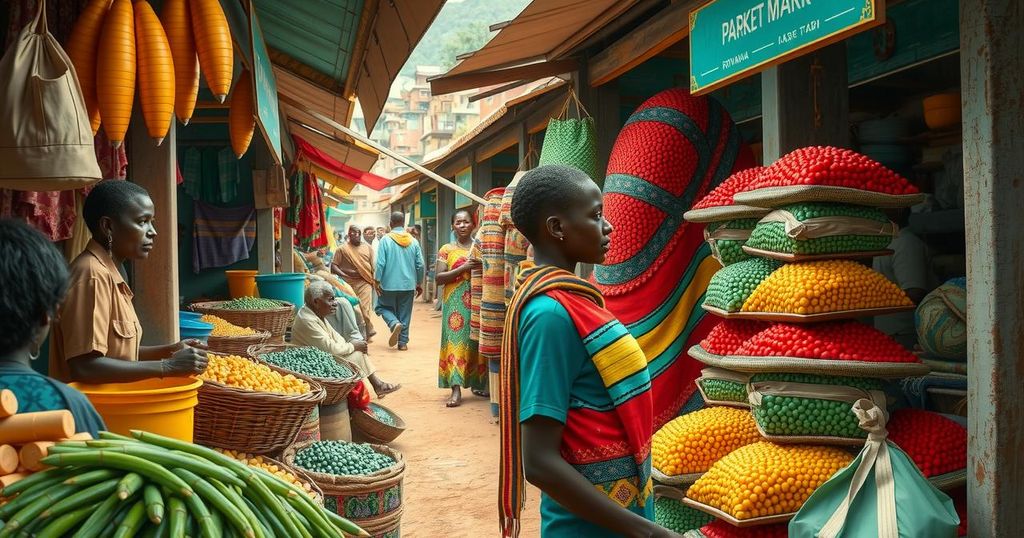Rwanda’s economy is expanding rapidly with an 8.9% GDP growth in 2024, driven primarily by consumer spending, which constitutes 70% of the GDP. Government spending and digital finance innovations are key contributors to increased money circulation. However, risks such as high import dependency, inflation, and low investment levels call for strategic adjustments to ensure sustainable economic growth.
Rwanda is witnessing robust economic growth, with a projected GDP increase of 8.9% in 2024, amounting to Frw 18,785 billion. The latest report from the National Institute of Statistics of Rwanda (NISR), released on March 19, 2025, attributes this growth to a surge in consumer spending, which comprises 70% of the GDP. This dependency on domestic consumption, rather than investment or exports, raises questions regarding the long-term viability of the economic model.
The NISR report highlights an 18% growth in the wholesale and retail sector, indicating significant consumer demand. Higher expenditures by households and businesses have bolstered various sectors, including hospitality, which experienced an 11% increase. Such growth aligns with Rwanda’s ambition to be a regional tourism and business hub, enhancing both foreign and domestic tourism.
Government expenditure has also significantly influenced money circulation, increasing by 15% in 2024. Investments in infrastructure, social programs, and wages have created a favorable liquidity environment. Fields such as health services and education have seen notable surges in funding, promoting increased household spending capacity.
The information and communication sector is among the fastest-growing, with a remarkable 25% rise attributed to advancements in mobile money and e-commerce. This digital finance transformation facilitates quicker monetary transactions, thus enriching liquidity. The expansion of mobile platforms like MTN Mobile Money and Airtel Money has made financial transactions more accessible and efficient.
Rwanda’s manufacturing industry is contributing to economic expansion as well, achieving a 7% growth rate. Critical sectors, including machinery and textiles, have benefited from local demand following restrictions on second-hand clothing. This growth leads to increased job creation and disposable income, fueling further consumer spending.
Remittances from the diaspora offer substantial support, contributing $502 million in 2024, despite a slight decline from the previous year. This financial inflow aids family welfare and personal investments, thus stimulating household spending. Additionally, ongoing foreign aid and funding bolster Rwanda’s economy, particularly in education and infrastructure.
Nevertheless, a high liquidity situation presents risks, notably the potential for an escalating trade deficit due to high imports of consumer goods. Continued reliance on foreign products could pressure the Rwandan franc and escalate inflation, making items more costly for consumers. A low savings trend poses another challenge, risking insufficient long-term investment towards sustainable economic growth.
As the economy expands, Rwanda must prioritize an investment-oriented culture and reduce dependency on imports to enhance domestic production. Striking a balance between increased liquidity and strategic investments in sectors such as manufacturing and technology is crucial for establishing a self-sufficient economic framework.
In summary, Rwanda’s economy is on an upswing, driven by increased consumer spending, government expenditures, and a burgeoning digital finance sector. However, challenges such as import dependency, inflation risks, and low investment levels must be addressed to achieve sustainable growth. By focusing on fostering domestic production and reducing reliance on imports, Rwanda can transform its current liquidity into a robust, self-reliant economy.
Original Source: www.ktpress.rw




